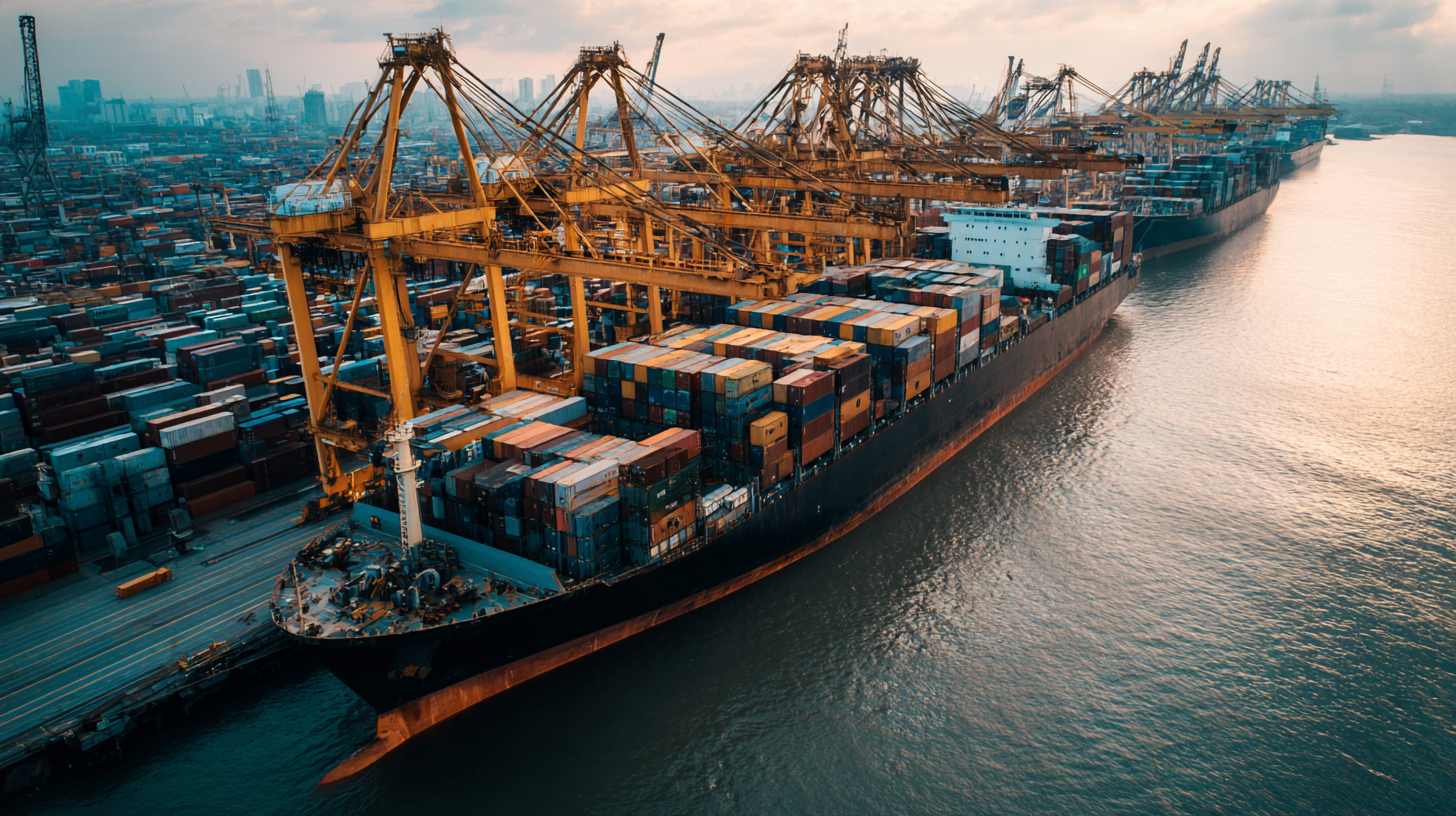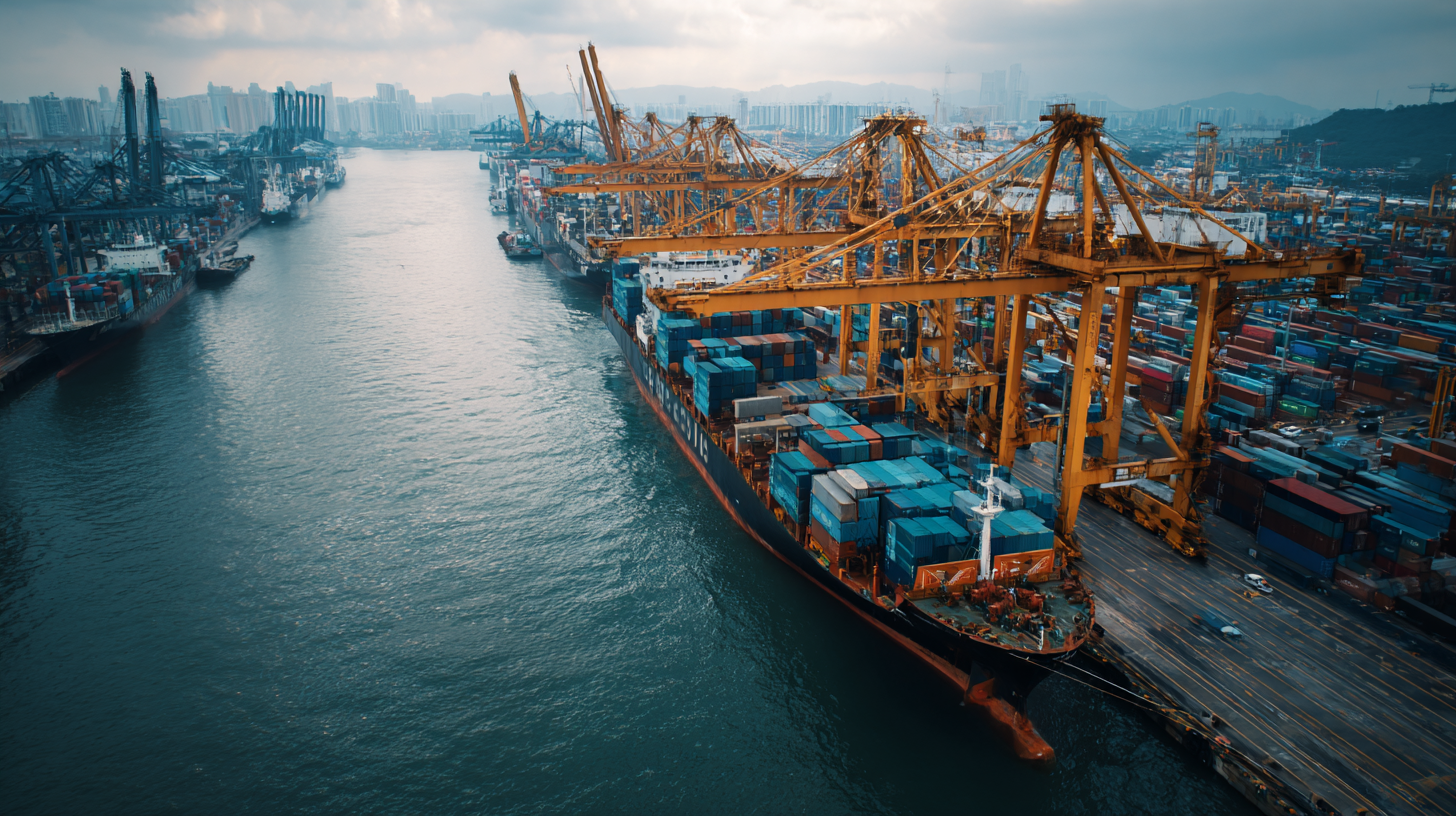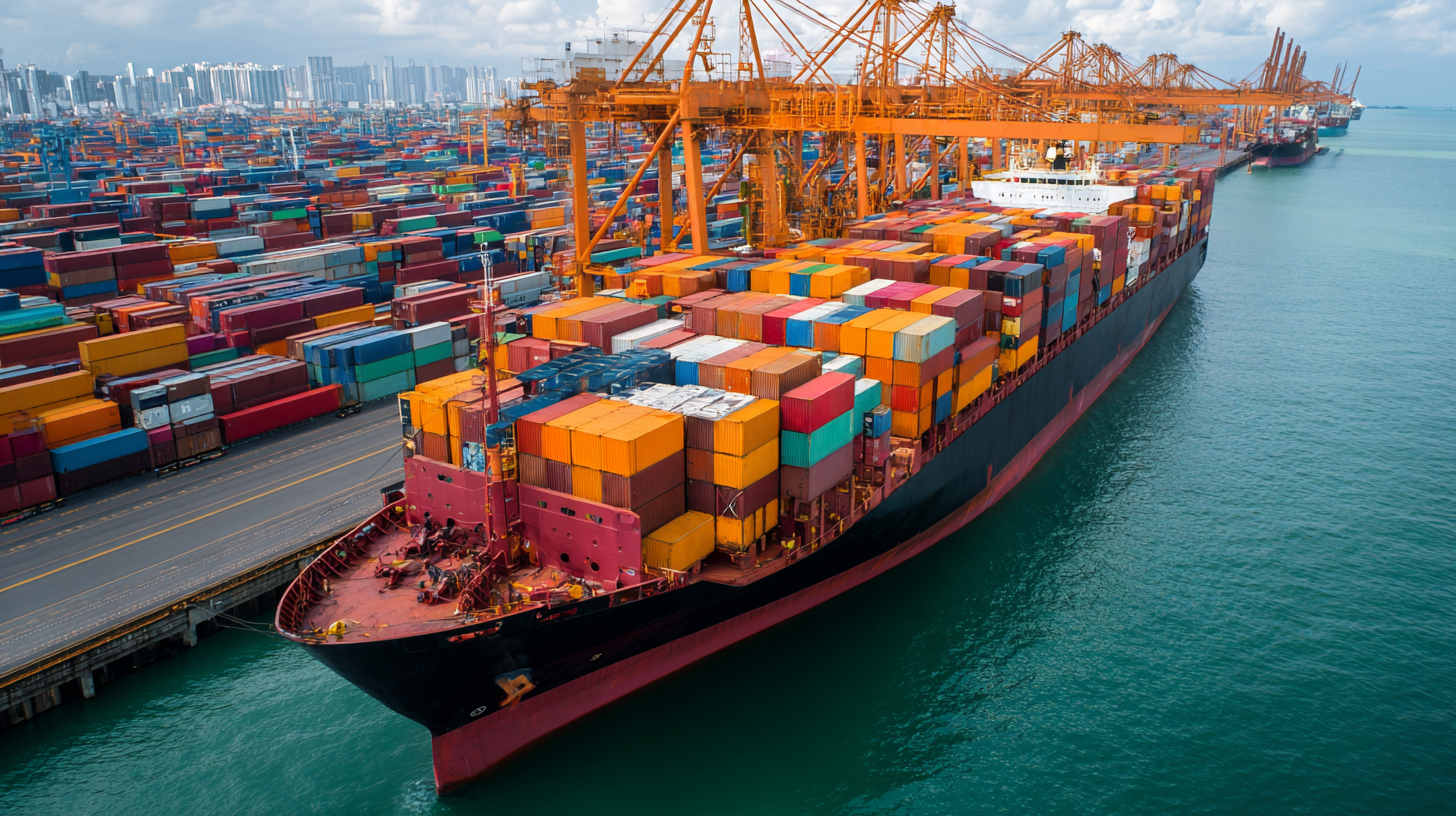In the ever-evolving landscape of global trade, maximizing efficiency in cargo shipping has become a critical objective for businesses aiming to enhance their competitive edge. According to a recent report by the International Maritime Organization, the global cargo shipping industry is expected to see a significant growth rate of approximately 4.5% annually over the next decade, driven largely by increasing demand for international trade and advancements in logistics technology. As manufacturers in China continue to dominate the export market, accounting for nearly 30% of global goods exported, optimizing the shipping process is paramount. Implementing effective strategies can not only reduce costs but also streamline operations, thereby improving delivery times and customer satisfaction. This blog will explore the top strategies for maximizing efficiency in cargo shipping, enabling businesses to thrive in a crowded marketplace while navigating the complexities of international logistics.

In the fast-paced world of global trade, the efficiency of cargo shipping is influenced by several key factors. According to a report by the International Maritime Organization, inefficiencies in shipping can account for up to 20% of total logistics costs, highlighting the importance of optimizing operations. Major elements such as route planning, vessel utilization, and freight scheduling play crucial roles in maximizing efficiency. For instance, utilizing advanced analytics for route optimization can significantly reduce transit times, potentially saving the industry millions in fuel costs.
Additionally, the integration of digital technologies such as the Internet of Things (IoT) and blockchain can enhance transparency and coordination in the shipping process. A study by McKinsey & Company reveals that digitizing supply chain processes can lead to efficiency gains of up to 30%. This digital transformation enables better tracking of cargo, which not only minimizes delays but also enhances cargo safety. Ultimately, addressing these key factors can lead to streamlined operations and a substantial reduction in the overall costs associated with cargo shipping, essential for maintaining competitiveness in the global market.
Innovative technologies are reshaping the cargo shipping industry, allowing businesses to enhance efficiency and reduce costs. One of the most significant advancements is the integration of IoT (Internet of Things) devices, which enable real-time tracking of shipments. This technology allows companies to monitor the location and condition of their cargo throughout the shipping process. As a result, businesses can respond quickly to any potential delays or issues, ensuring timely deliveries and improved customer satisfaction.
Moreover, the use of artificial intelligence and machine learning algorithms is revolutionizing cargo logistics. These technologies analyze vast amounts of data to forecast demand and optimize shipping routes. By predicting peak shipping times and identifying traffic patterns, companies can make informed decisions that minimize transit times. Furthermore, automation in warehouses, such as robotic pickers and automated storage systems, streamlines operations and reduces labor costs, making the entire shipping process more efficient and cost-effective. With these innovations, the cargo shipping industry is paving the way toward a more efficient future.

Effective logistics management is crucial for ensuring streamlined cargo operations, allowing businesses to meet customer demands while minimizing costs. One fundamental strategy is the implementation of an advanced tracking system. By utilizing real-time tracking technology, companies can monitor shipments throughout their journey, leading to better coordination and timely deliveries. This transparency not only enhances reliability but also reduces the chances of delays, ensuring that customers receive their cargo as scheduled.
Additionally, optimizing route planning plays a vital role in efficient logistics management. Employing sophisticated algorithms to analyze traffic patterns, weather conditions, and port performance can significantly reduce transit times. This strategic planning not only saves money on fuel and labor costs but also improves overall productivity. Integrating these technologies with a strong communication system among all stakeholders involved—from suppliers to end customers—creates a cohesive network that enhances operational efficiency and customer satisfaction, ultimately fostering growth in the cargo shipping industry.

Collaborating with Chinese manufacturing partners can significantly enhance the efficiency of cargo shipping operations. According to a report by Export Genius, over 28% of global manufacturing occurs in China, making it a critical hub for businesses looking to optimize their supply chains. To get the most out of these partnerships, companies should establish clear communication channels and set realistic expectations regarding production timelines and delivery schedules.
**Tips**: Leverage technology by utilizing collaborative platforms for real-time updates and document sharing. This ensures that both parties are aligned on order requirements and timelines, reducing the risk of delays.
Moreover, understanding the local regulations and customs processes in China is vital. The World Bank's Logistics Performance Index indicates that improvements in logistics efficiency can reduce shipping times by up to 20%. Companies should familiarize themselves with these regulations to avoid costly delays and ensure smooth customs clearance.
**Tips**: Engage with a freight forwarder experienced in navigating Chinese logistics to streamline the shipping process. Their expertise can help mitigate potential issues arising from compliance discrepancies that might otherwise hinder shipping efficiency.
| Strategy | Description | Efficiency Impact | Implementation Difficulty |
|---|---|---|---|
| Streamline Communication | Establish clear channels and regular updates to keep all parties informed. | High | Medium |
| Automate Processes | Utilize software tools to reduce manual tasks and errors in logistics. | High | High |
| Partner with Reliable Carriers | Choose carriers with proven track records for timely deliveries. | Medium | Medium |
| Consolidate Shipments | Combine smaller shipments into one to reduce costs and improve transit time. | High | Medium |
| Monitor and Analyze Performance | Use KPIs to track shipping efficiency and identify areas for improvement. | Medium | High |
In the ever-evolving landscape of cargo shipping, sustainability has emerged as a critical focal point for enhancing performance. Implementing eco-friendly strategies not only aligns with global environmental goals but also boosts operational efficiency. One of the most effective methods is optimizing logistics through route planning and load management. By utilizing advanced software that analyzes traffic patterns and weather conditions, companies can reduce fuel consumption and minimize delivery times, leading to lower emissions and cost savings.
Another key strategy involves transitioning to greener energy sources. Many shipping companies are now investing in alternative fuels such as LNG (liquefied natural gas) or hydrogen. These fuels produce fewer greenhouse gases compared to traditional diesel. Additionally, integrating fuel-efficient technologies, such as wind-assisted propulsion systems, can significantly reduce a vessel’s carbon footprint. By embracing innovative solutions like electric-powered cargo vessels or hybrid systems, the industry can pave the way for a more sustainable future while improving overall performance.
Moreover, fostering a culture of sustainability within organizations can enhance employee engagement and productivity. Training staff on sustainable practices and encouraging their input on eco-friendly initiatives can lead to a more efficient workflow. Engaging with stakeholders, including suppliers and customers, to promote green practices in the supply chain further strengthens the commitment to sustainability. By prioritizing these sustainable strategies, cargo shipping companies can achieve greater efficiency and performance, ultimately contributing to a healthier planet.
This bar chart illustrates the effectiveness of various strategies implemented in cargo shipping to enhance performance and sustainability.






